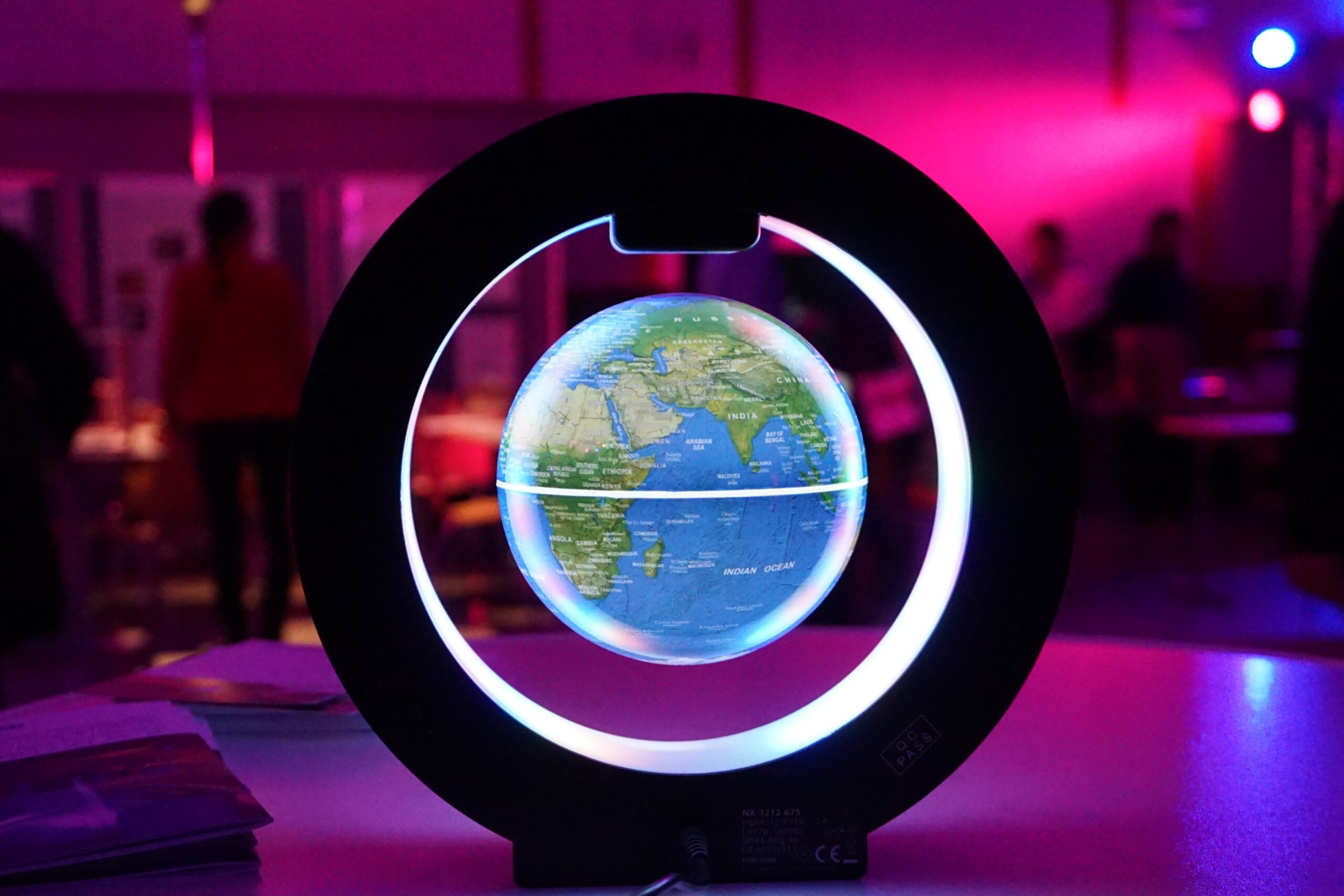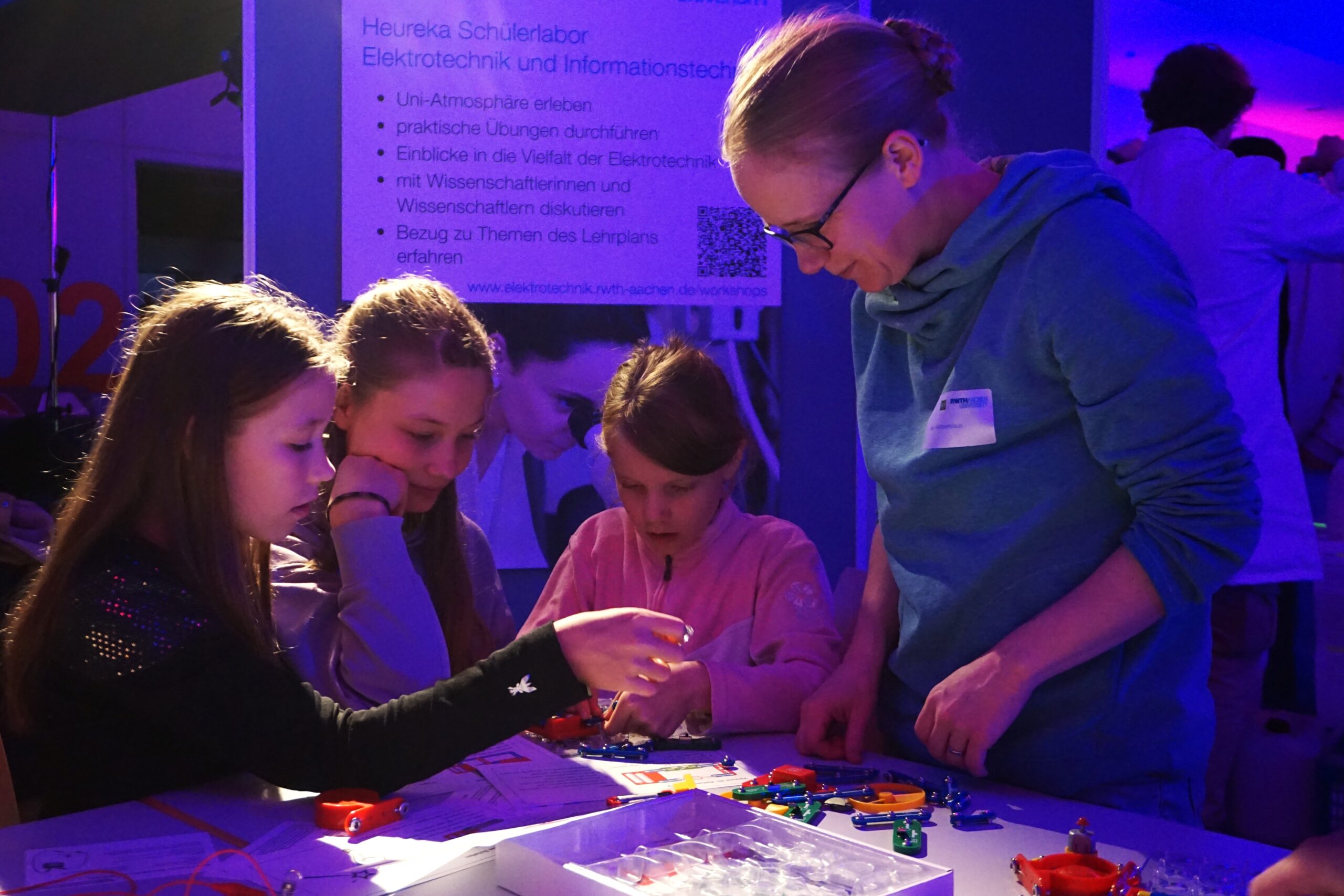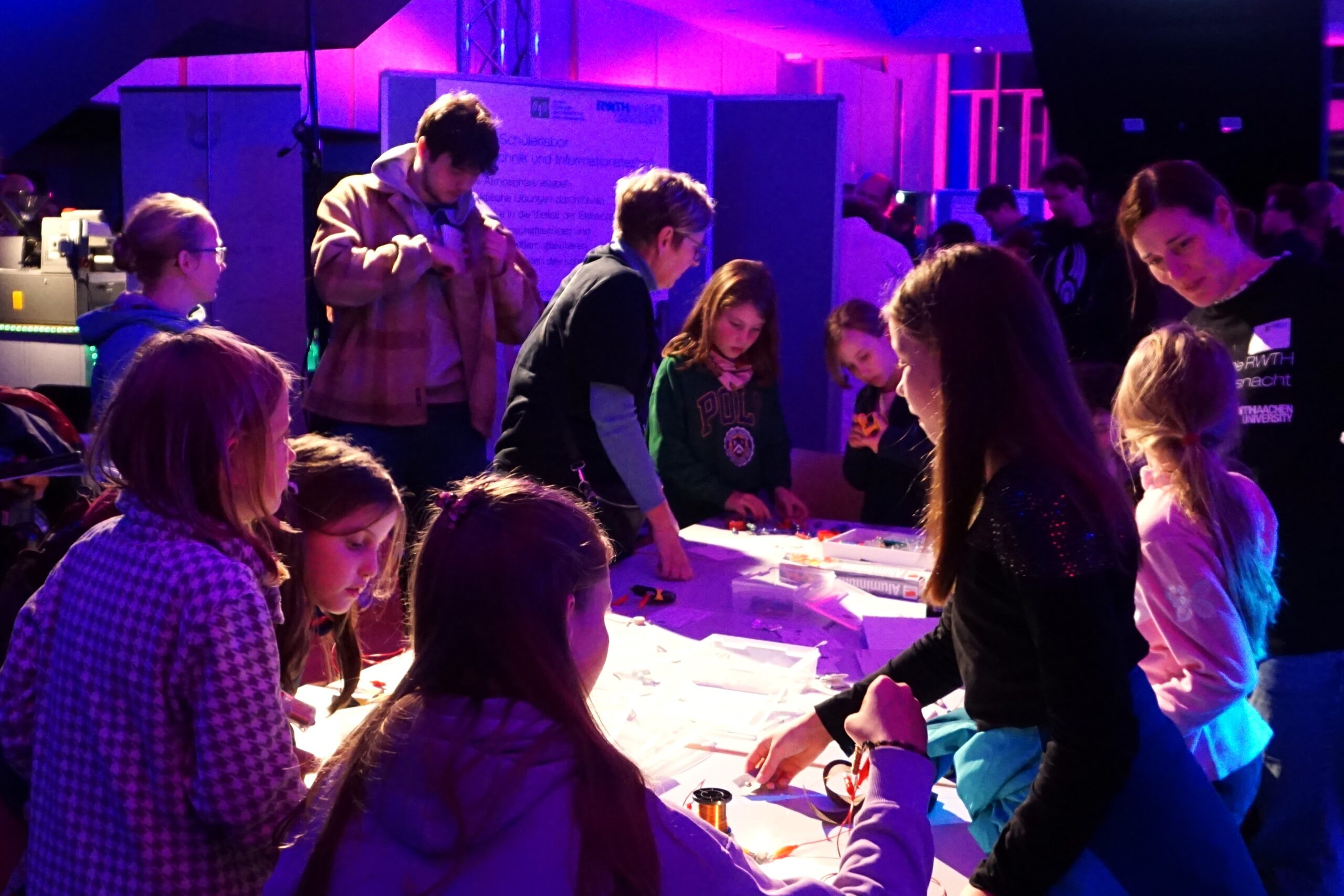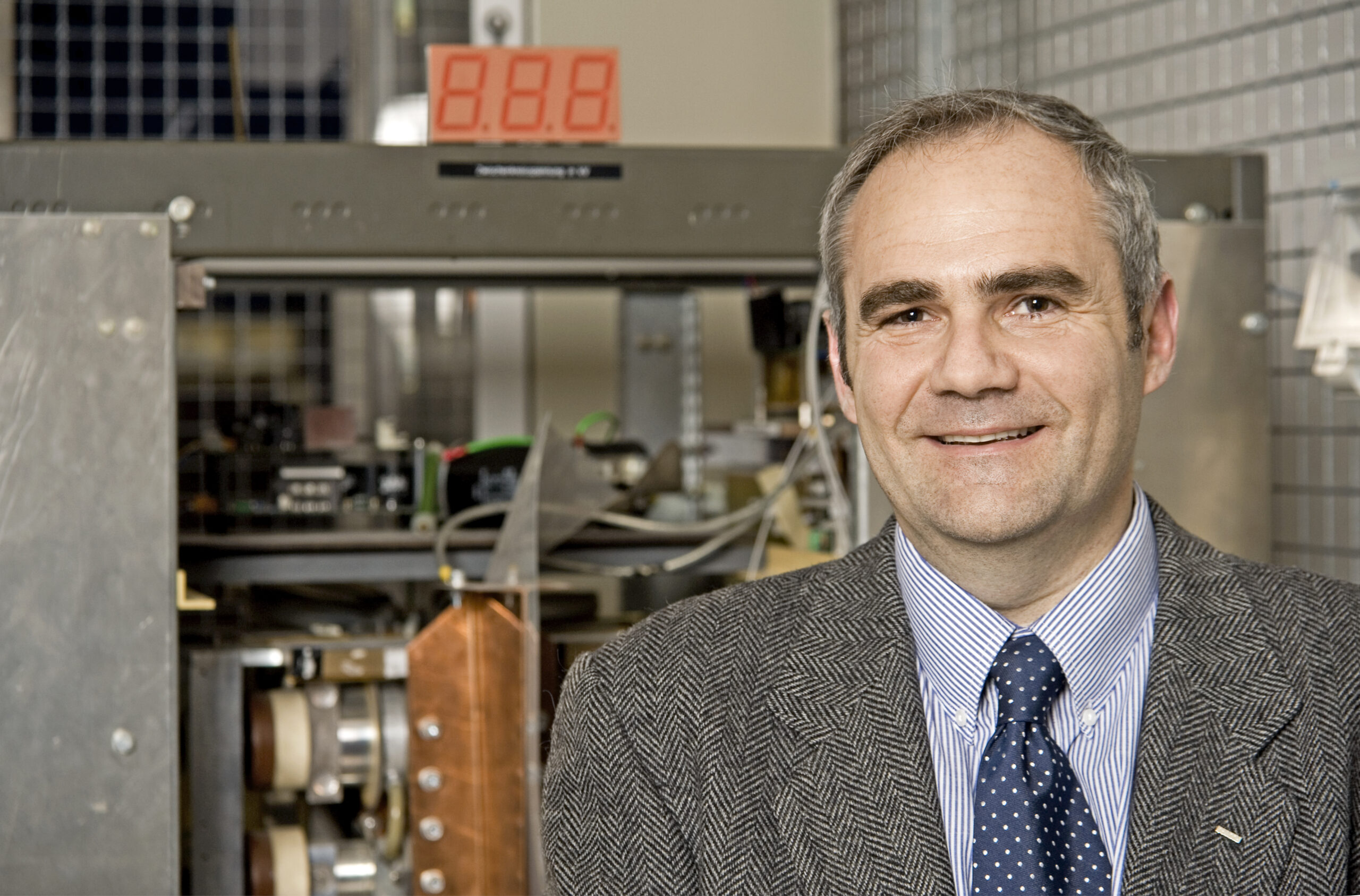Schlagwort: ‘ACS’
Humboldt Fellow at the E.ON Energy Research Centre

Dr Ameze Big-Alabo, of the University of Port Harcourt in Nigeria, is carrying out research at the Automation of Complex Power Systems Chair at RWTH Aachen University. © Judith Peschges
Ameze Big-Alabo, an electrical engineer specialising in microgrids, joined Professor Antonello Monti’s international research team in April 2025 as part of a Humboldt Fellowship.
As part of the Humboldt Foundation’s Henriette Herz Scouting Programme, Professor Antonello Monti — Head of the Institute and holder of the Chair of Automation of Complex Power Systems (ACS) — successfully recruited the scientist for the E.ON Energy Research Center. Ameze Big-Alabo, an experienced researcher with an international background, then moved from the University of Port Harcourt in Nigeria to RWTH Aachen University.
She specialises in wind turbines and solar panels, as well as their integration into local energy grids. Her aim is to make microgrids more efficient, robust and sustainable. Microgrids are small, local energy networks that can operate separately from, or be connected to, the general power grid. Further development of these systems requires complex designs and mathematical modelling to represent real microgrids. This includes optimisation, energy management and fault detection.
‘My field of research fits in perfectly with the Institute’s focus areas in Aachen. I’m making good progress, and everything is going according to plan so far,’ the scientist made her initial assessment.
Computer-aided simulations play a vital role in her work. She analyses how different energy sources can be combined most effectively. When modelling solar panels, for example, she considers factors such as solar intensity, outdoor temperature, geographical location and panel size. These simulations are then followed by experimental tests. As well as the intensive computer-based work, she values personal dialogue within the research team.
‘I really like the international community that exists here. There are many people from different backgrounds working at the institute and I get on well with all of them,’ says the researcher.
Ameze Big-Alabo has extensive international experience. She obtained her Bachelor’s and Master’s degrees in Electrical Engineering in Nigeria, after which she was awarded a scholarship to study for a Master’s degree in Advanced Control Systems Engineering at the University of Manchester. She won the Neil Munro Prize for the best Master’s thesis in her field there. This was followed by a scholarship to undertake a PhD at the University of Glasgow in Scotland.
The scientist hopes to continue collaborating with RWTH after her research stay ends in April 2026. Upon her return, she intends to resume her teaching activities in Nigeria. Her long-term goal is to help improve the energy supply in her home country.
‘Energy generation is one of the biggest challenges that we face. I want to use the knowledge that I acquire during my research visits to help with sustainable development,’ Ameze Big-Alabo explains.
The Humboldt Research Fellowship is aimed at highly qualified postdoctoral researchers from all disciplines and all over the world. It enables researchers at various stages of their academic careers to conduct personal research projects in collaboration with a host research institution in Germany. The monthly stipend amounts to €3,200 plus fringe benefits. The fellowship can be applied for in periods of between six and 18 months, and can be divided into up to three stays within a three-year period.
The Henriette Herz Scouting Programme enables renowned and well-connected researchers to expand their team with excellent Humboldt Research Fellows. When nominating fellows, individual life and educational paths are taken into account, particularly with regard to equal opportunities and accessibility.
Further information on the Humboldt Research Fellowship and the Henriette Herz Scouting Programme can be found via the links provided.
Birthday edition of the RWTH Science Night ‘5 to 12’

The magnetic globe rotates weightlessly on its own axis – just like in outer space
For the 20th time, RWTH Aachen University offered a glimpse behind the scenes. This time, 7,200 visitors, including many children, came to the C.A.R.L. auditorium between 6 p.m. and midnight to experience the world of research at close quarters.
What started out as a modest idea to present science at an unusual time, in an entertaining way and free of charge to anyone interested, has grown over the past 20 years into a mega-event that not only attracts thousands of guests, but also inspires the members of the university involved. Once again, the team of the Faculty of Electrical Engineering and Information Technology welcomed curious children of all ages and were on hand to help them with experiments.
With questions such as “Why isn’t the light on now?”, “How does that work?” or “Can I do one more experiment?” younger children followed their natural urge to discover new things.
The programme included reconstructing electrical circuits where they could visualise electric current as light or movement. They made switches, explored the magnetic and thermal effects of electricity, learned to distinguish between conductors and non-conductors, and finally became familiar with electricity.

Faculty members provide support when experimenting with electric circuits
Older children ‘already had this at school’ and enjoyed putting their theoretical knowledge to the test. But adults also found their way to our station, taking the opportunity to generate lightning with the influencing machine, thoughtfully lingering in front of the floating globe, or attentively studying the model of the power distribution network set up by the Chair of Automation of Complex Power Systems. The joy of experiencing research and progress together is clearly at the centre of the Science Night.
„We want to show in an entertaining way what RWTH has to offer – and in such a way that everyone who wants to know something can understand it,’ said Rector Ulrich Rüdiger.
The potential of the Science Night is therefore even greater, as it represents an important interface where the direct transfer of knowledge takes place in a social and cultural context. In line with the motto ‘from the laboratories to the people’, it makes an important contribution to promoting proximity between science and society.

The station of the Faculty of Electrical Engineering and Information Technology, equipped with numerous child-friendly experiments
The programme for this year’s Science Night took place in ten lecture halls and numerous seminar rooms. There were over 80 shows and lectures, experiments, talks and discussions. From Artificial Intelligence (the experts from the RWTH’s AI Centre had brought along the robot ‘Pepper’ for support) to the ‘Physics Fair’, from the latest information on the US elections and the spectacular ‘Fascination of High Voltage’ to the circular economy, floating Teslas and the construction site of the future. The range of topics was as colourful and diverse as the RWTH itself.
Further information on the programme, as well as impressions and experiences of the organisers – Department of Press and Communication, Section 3.2 – can be accessed via the links.
Excellent researchers on an interdisciplinary stage: lecture by Professor Monti

© Peter Winandy
On 17 April, Professor Antonello Monti of RWTH Aachen University will speak at the scientific meeting of the engineering and economics class of the “Nordrhein-Westfälische Akademie der Wissenschaften und der Künste” about the development goals of his discipline in terms of solving major societal challenges.
Against the background of the international situation, the energy transition process is more important than ever.The necessary technological transformation of the energy system must be approached from two angles: On the one hand, a new major player in energy supply has emerged: renewable energy. On the other hand, there are new consumers such as electromobility and heat pumps. Digitalisation is proving to be a key enabler in this process. You could even say that digitalisation is not an option, but a necessity. The power system is consequently becoming a large, programmable cyber physical infrastructure with a high level of complexity. In his presentation “The Digitalisation of the Energy Systems: from the electrons to the cloud”, Professor Monti addresses this complexity by analysing the solutions currently being developed for the different levels of the infrastructure.
” Rethinking the whole architecture means reconsider the basic principles of operation of the new power system but also the corresponding IT systems”,
announced Professor Monti, Director of the Institute for Automation of Complex Power Systems (ACS).
So what does it mean to run a digital grid? And will we be able to build a digital grid that is as reliable as the current infrastructure?
The solutions he proposes in his presentation are the result of concrete experience from large European research projects. Professor Monti leads a research group with about 50 full time scientists working intensively on the the border between energy and information and communication technologies. He is responsible for coordinating some of the most relevant European projects in this field, such as OneNet, TwinEU und int:net. His research work has received several awards, including the prestigious “IEEE Field Medal Award for Innovation in Public Infrastructure” and the “NRW Innovation Award”.
In another presentation – “Sustainable metals: contributions from basic research” – Professor Dierk Raabe from the Max Planck Institute for Sustainable Materials will address the question of whether we can succeed in decarbonising a key industry with “green steel”.
Further information on the Nordrhein-Westfälische Akademie der Wissenschaften und der Künste can be found on the organisation’s homepage.



